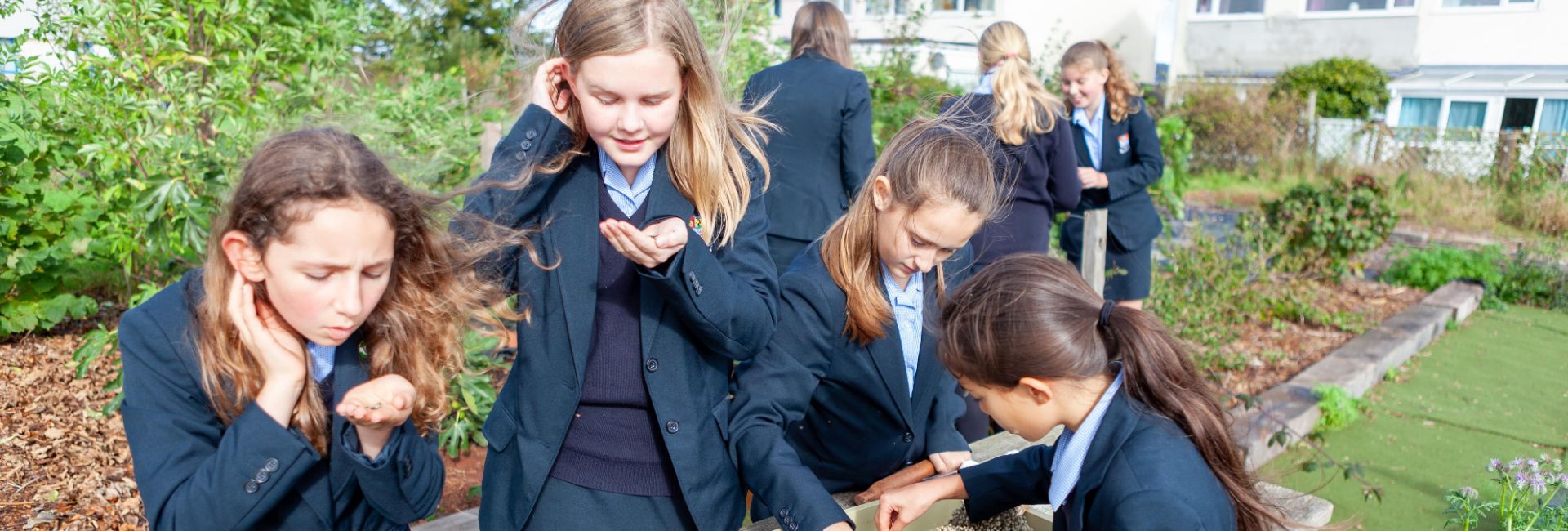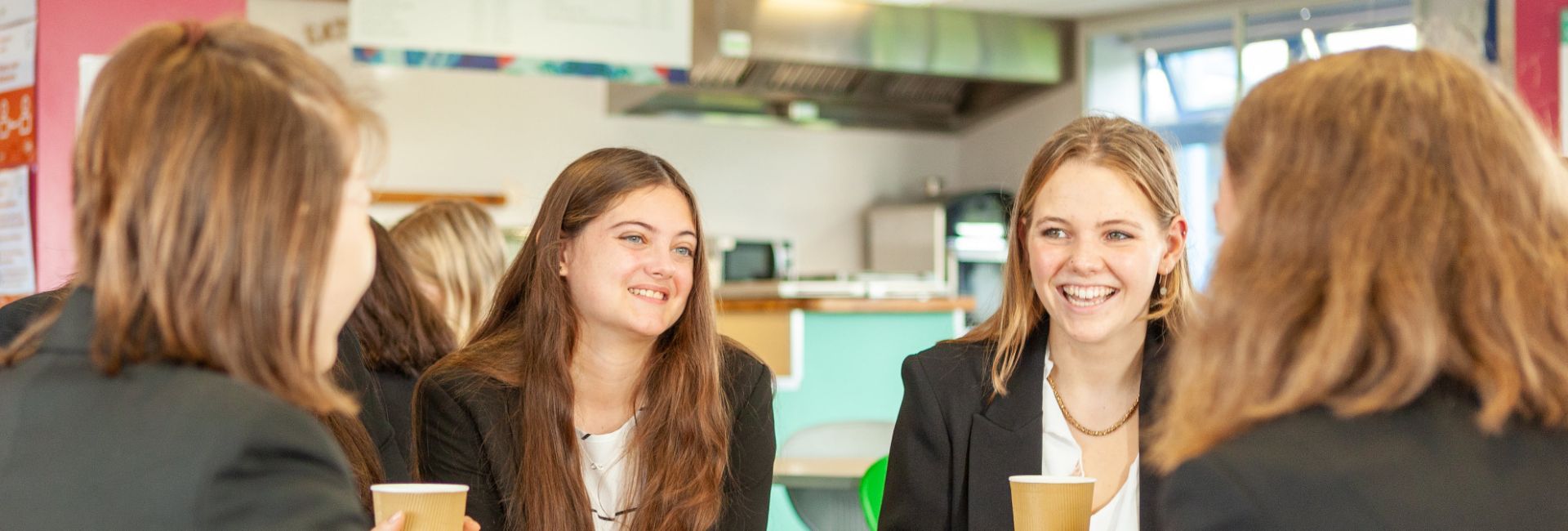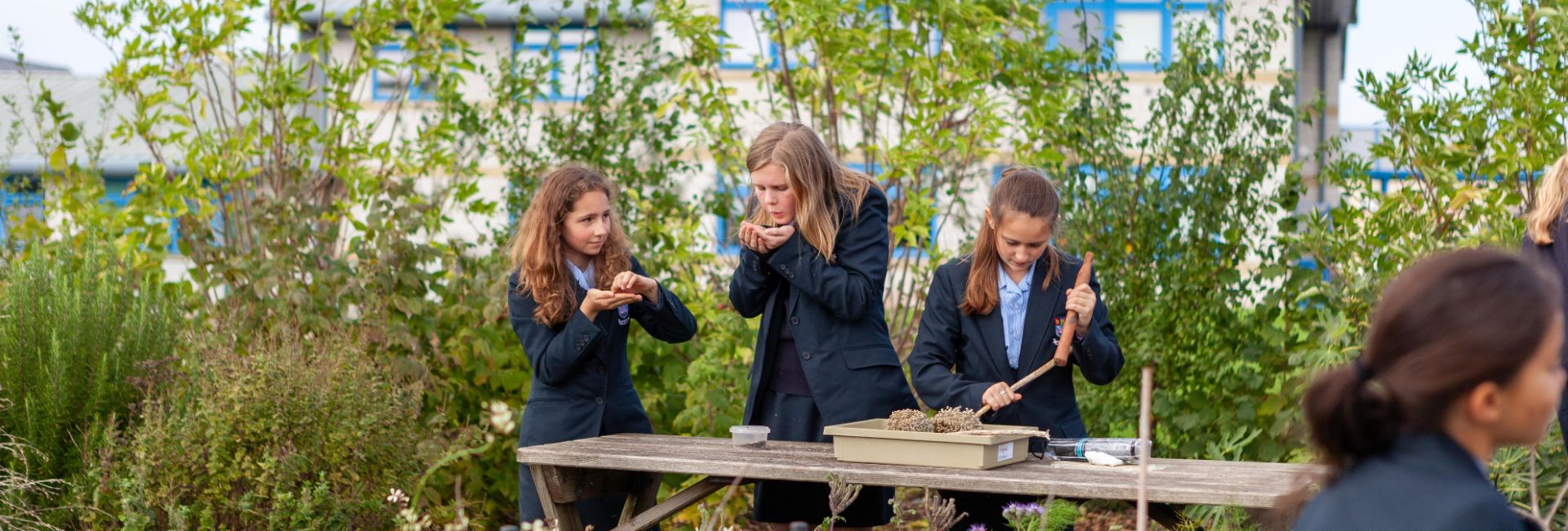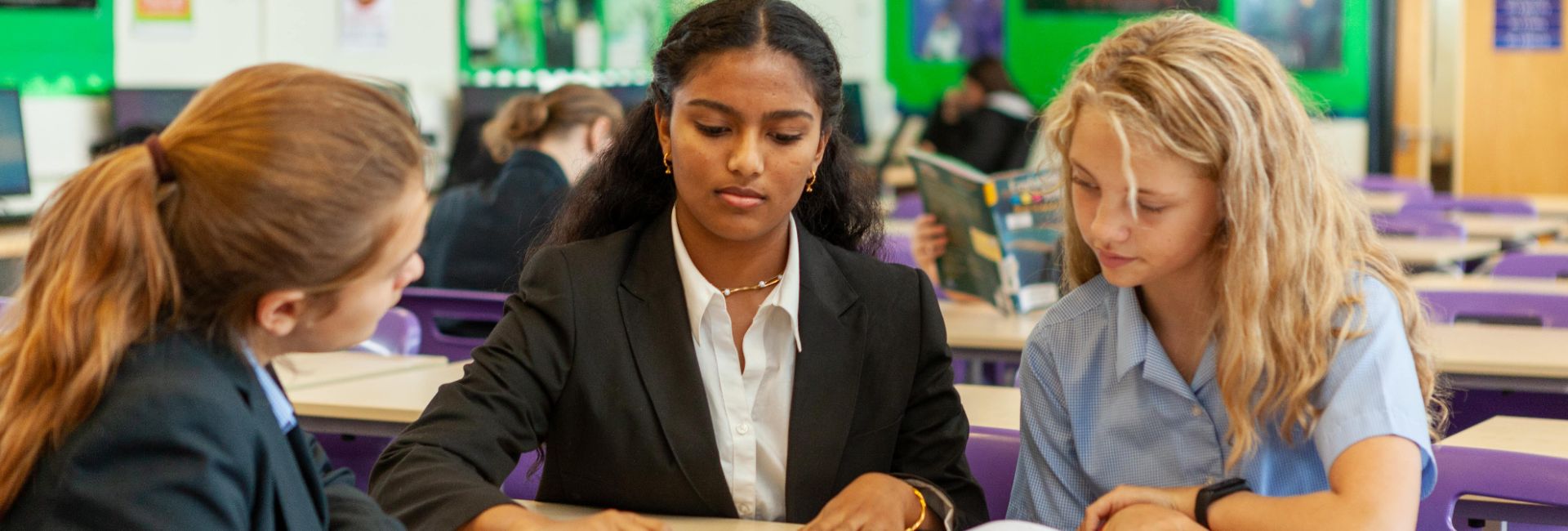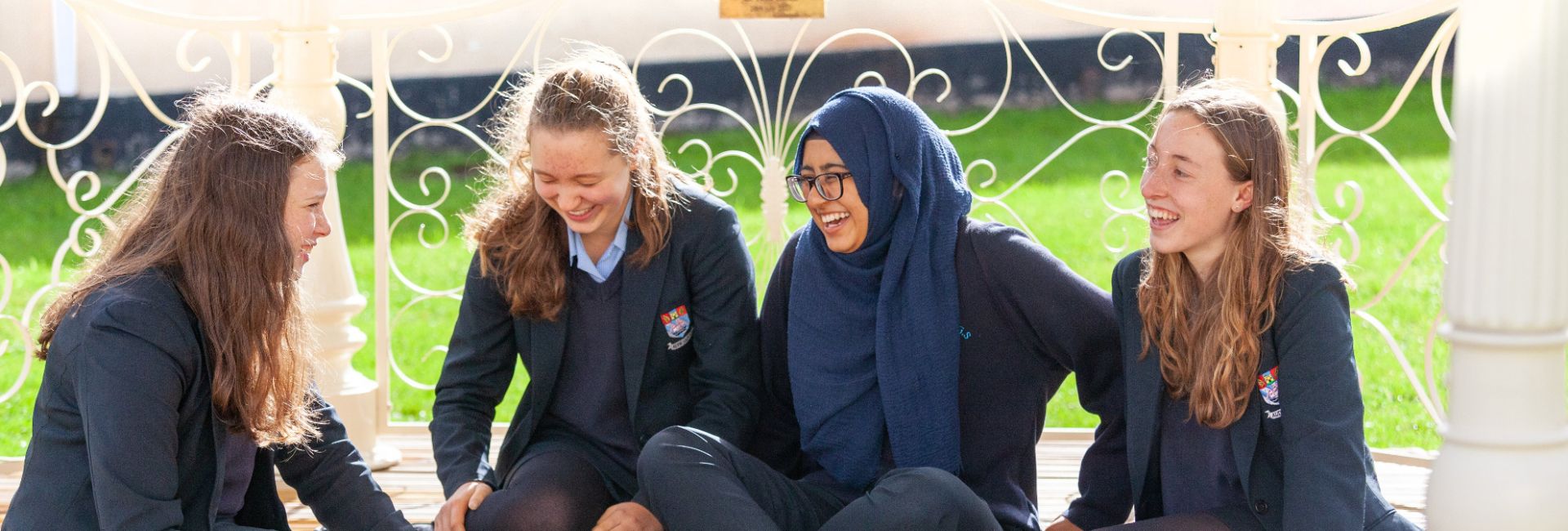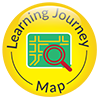Current Teaching Staff:
Mrs D Bloomfield - Head of Department
Miss R Thompson, Miss K Williams
Curriculum Intent:
To develop informed, open-minded, and tolerant global citizens who engage critically with a range of diverse issues that challenge us as humans.
Subject Overview
Religion, Philosophy and Ethics is taught to all students. In Years 7 and 8 students have three lessons a fortnight. In year 9 students start studying for a GCSE in Religious Studies. At KS5, RP&E is delivered in tutor time as well as tutorial lectures and students can opt to study A Level Religious Studies.
Our aim is that students:
-
Understand that there is diversity within religious and non-religious traditions, but also that there can be common ground between them.
-
Understand that religions are dynamic as they need to respond to current issues. For example, we look at how religions respond to organ donation, crime, human rights and environmental issues etc. We look at what might lead people within a religion to disagree about these issues.
-
Are aware of some of the benefits and challenges facing both religious and non-religious believers in the UK today. For example, we look at the benefits and challenges of being a Muslim in Devon. This unit was written in consultation with Muslim students at the school.
-
Are aware that religion can manifest itself in unpleasant ways.
-
Use interdisciplinary approaches to the study of religion e.g., philosophical, sociological, and psychological.
-
Reflect on religious and non-religious teachings to develop or formulate their own views.
-
Find the subject stimulating and enjoyable.
-
Develop skills and attitudes that will help them in further academic studies as well as a variety of careers.
SMSC
RP&E plays a significant role in promoting SMSC, PSHE and Ethics.
SMSC and Ethics:
Each unit in RP&E gives students opportunities to formulate their own views about philosophical, religious, and ethical issues in the light of other peoples’ beliefs.
At each Key Stage, we also have units of work to learn about and evaluate the different ways people make moral decisions. In A level RS, one of the three components studied is moral philosophy.
We have arranged trips to local synagogues and churches. Recent visitors include Linx Christian youth trust and a local policeman to talk about crime and punishment.
PSHE: At each key stage, we have units of work that consider different religious and non-religious attitudes towards relationships, including LGBTQ+ ones, supporting PSHE.
British Values
RP&E promotes British Values, in particular mutual respect and tolerance of those of different faiths and beliefs. We aim to provide a safe space for students to discuss and debate different opinions whilst respecting and understanding the views of others.
Reading
A key focus in RP&E is to understand how interpretation of religious texts can lead to a diversity of opinion about an issue. To promote reading of books with ethical or religious themes, we ask students to write a review of a book that they have enjoyed, which are then shared. In addition, we have books and magazines (RS Review and Philosophy Today) in our classrooms which we encourage students to borrow.
Oracy
Communication of ideas through discussion and debate is facilitated in our classrooms through the grouping of tables so that students can discuss issues with each other. Different forms of debate are embedded in our lessons, giving students an opportunity to listen to each other and share their views.
Careers
Wherever appropriate, we link content in our lessons to careers, recognising that it is important for students to see how knowledge and skills developed in RP&E can be useful in their future.
Character skills
We have high expectations of students in our lessons to produce their best work and to contribute to the lessons. We emphasise the need to not only share opinions, but also to be open-minded and listen to the views of others. We pride ourselves on having positive relationships with students and giving them a safe space to express themselves.
Religious Studies Career Guide



